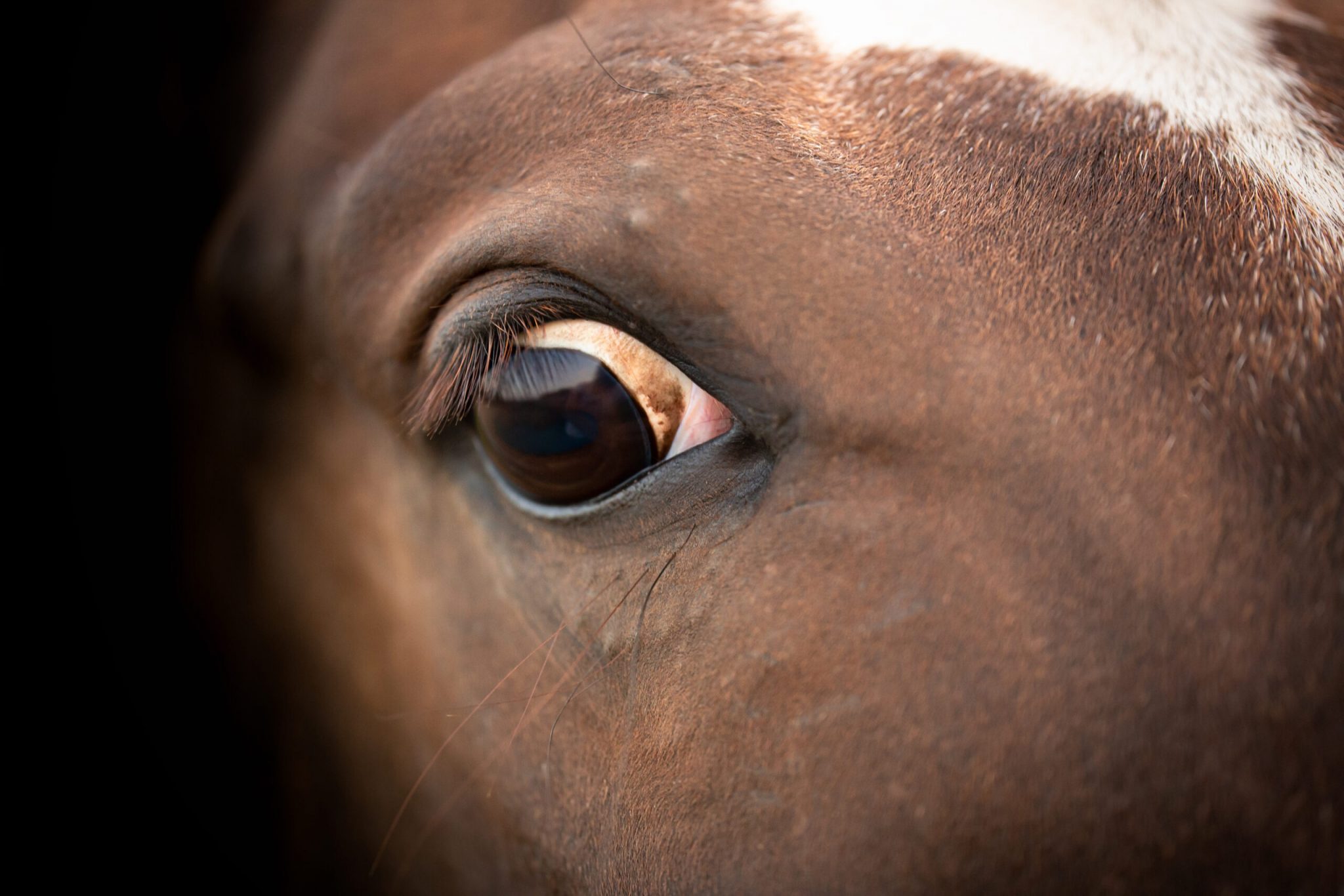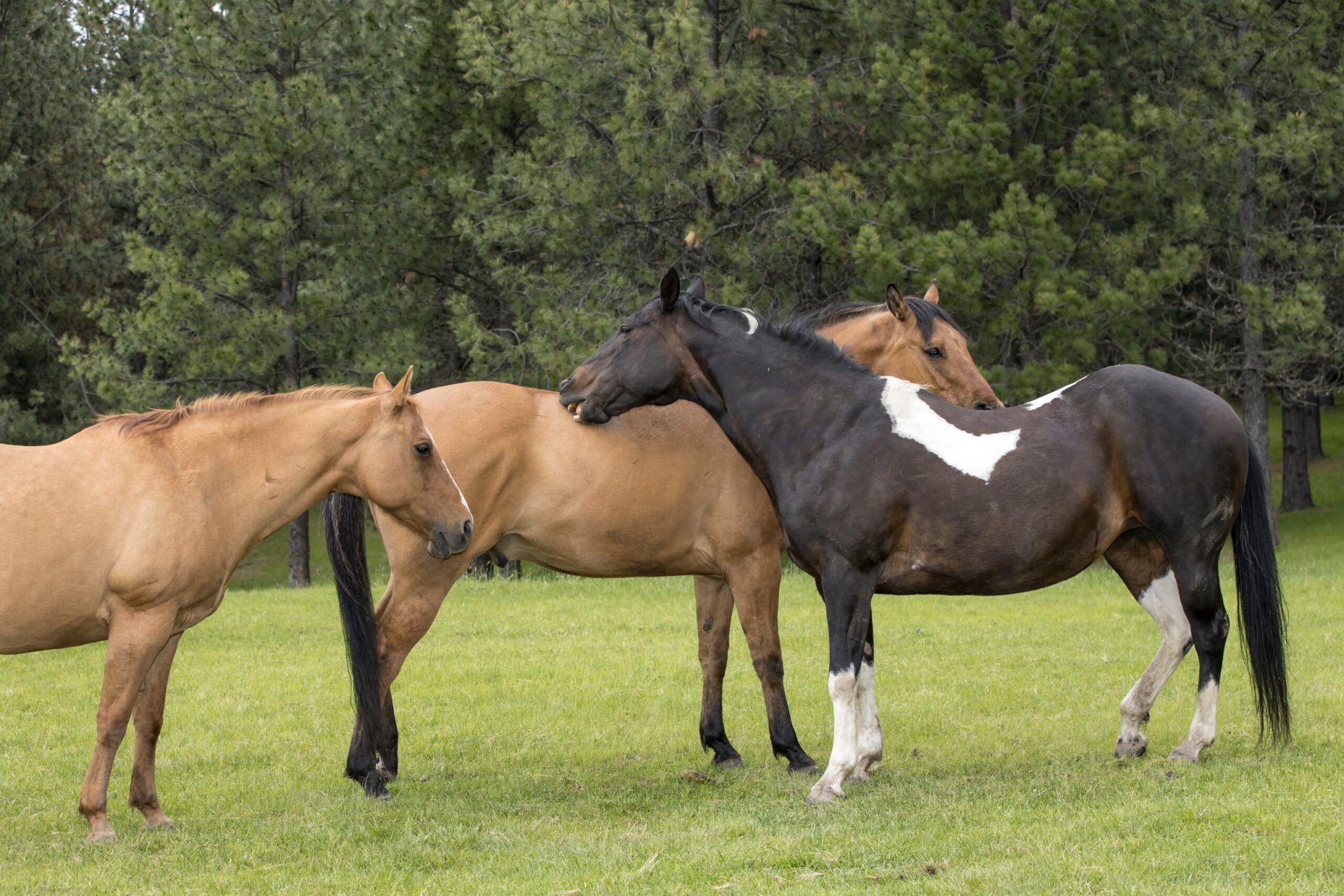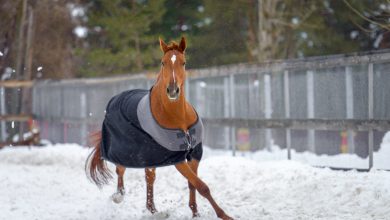
It’s true, horses can benefit our mental health. Their patient, gentle nature is effective in calming anxiety and stress. They’re great listeners and keep their opinions to themselves about your personal life. Horses are often used in therapy, and to promote healing.
However, your horse needs to have his mental health considered, as well. And as responsible horse owners, it’s our duty to make sure our equine friends are feeling their best, both physically and mentally. You pay close attention to his nutrition, keep him warm and comfortable, stay on top of farrier and vet visits, but what about his mental well-being? Let’s talk about some ways we can help benefit our horse’s mental health.
Meet the Needs of the Whole Horse
It’s a given that we work hard to meet the nutritional and physical needs of our horses. We read feed tags, research supplements, and have our vet on speed dial if we notice physical issues. However, don’t forget to meet his mental and emotional needs, as well.
Meeting the needs of the whole horse means understanding that they are complex creatures, just like us. They are affected by stress, and our actions can positively or negatively impact their mental well-being. Our equine friends give us their all and benefit our mental health in many ways. We can help return the favor.
You’re Stressin’ Me Out, Man
First things first, let’s address the elephant in the room: stress. Many things can stress out our horses, such as changes in routine, new surroundings, and yes, even us humans. One way to combat stress is to implement some consistency in your horse’s life. Regular exercise, grooming, and your attention to his needs will be much appreciated by your horse.
This also applies to your training. Knowing when to challenge your horse and push for his best, and knowing when to back off is incredibly important. Trying to end your training sessions on a good note, and knowing what battles to pick will also help manage your horse’s stress level.
If you haul your horse regularly to events, understand that long rides in the trailer, new environments, and a strict training schedule can all be stressors. Some horses handle these regimes well, and others can develop physical symptoms that are indicative of stress. Keep an eye on your horse at shows and events and watch for signs of stress that are out of the ordinary, to avoid issues down the road. Before taking your horse to an all-day event, ensure that he is in shape and prepared, to avoid not just stress but also possible injury.

Herd Animals Need Herd Interaction
Another way to help benefit your horse’s mental health is by providing him with social interaction, both with other horses and with humans. Horses are social animals, and their mental health can suffer if they are isolated for extended periods of time.
Try to make time for your horse to interact with other equine friends, whether it’s through turnout time, a play session, or even just grazing together in the field. And don’t forget about human interaction! Spending quality time with your horse, whether it’s through grooming, hand grazing, or just hanging out, can help strengthen the bond between you and your equine and increase his overall happiness.
Having a companion for your horse is important to his social and mental well-being. Many people that cannot afford or provide an equine companion, opt for another animal companion, such as goats, donkeys, or other livestock. However, make sure that your horse is introduced properly and gets along with this friend, for the sake of both of the animals.

Beat the Boredom
Now, let’s talk about mental stimulation. Just like us humans, horses can get bored and restless if they lack stimulation. We can provide mental stimulation for our horses in a variety of ways, such as through training, trail rides, or even just providing different toys or challenges in their living space. Horses are intelligent animals, and by providing mental stimulation, we can help keep their minds sharp and their spirits high.
If your horse can’t handle turnout, or you don’t have the set-up, a slow feeder is a great choice. This can help mimic his natural grazing patterns, by allowing him to slowly eat throughout the day.
If you do most of your riding in an arena, try to mix up your routine. Endless circles are not stimulating, so you’ll want to mix it up from time to time. Try out different horsemanship patterns, testing your skills, and your horse’s. Work on lead changes, backing, turning, rollbacks, and throwing in obstacles when possible.
Should your horse spend much of his time in a stall, he will need turnout time or exercise. Allow him to spend time with other horses, to help meet his social needs. Loneliness and isolation can lead to physical manifestations of stress, such as cribbing, weaving, or even aggression. (It’s important to note that stereotypies aren’t always linked to stress or pain, and can simply be habits.) Of course, this advice isn’t as applicable to one on stall rest, that can’t handle turnout. If it’s an option though, hand grazing or walking in-hand, or even grooming sessions, will help break up his day and provide variety.
[8 ways YOU can destress with your horse]

